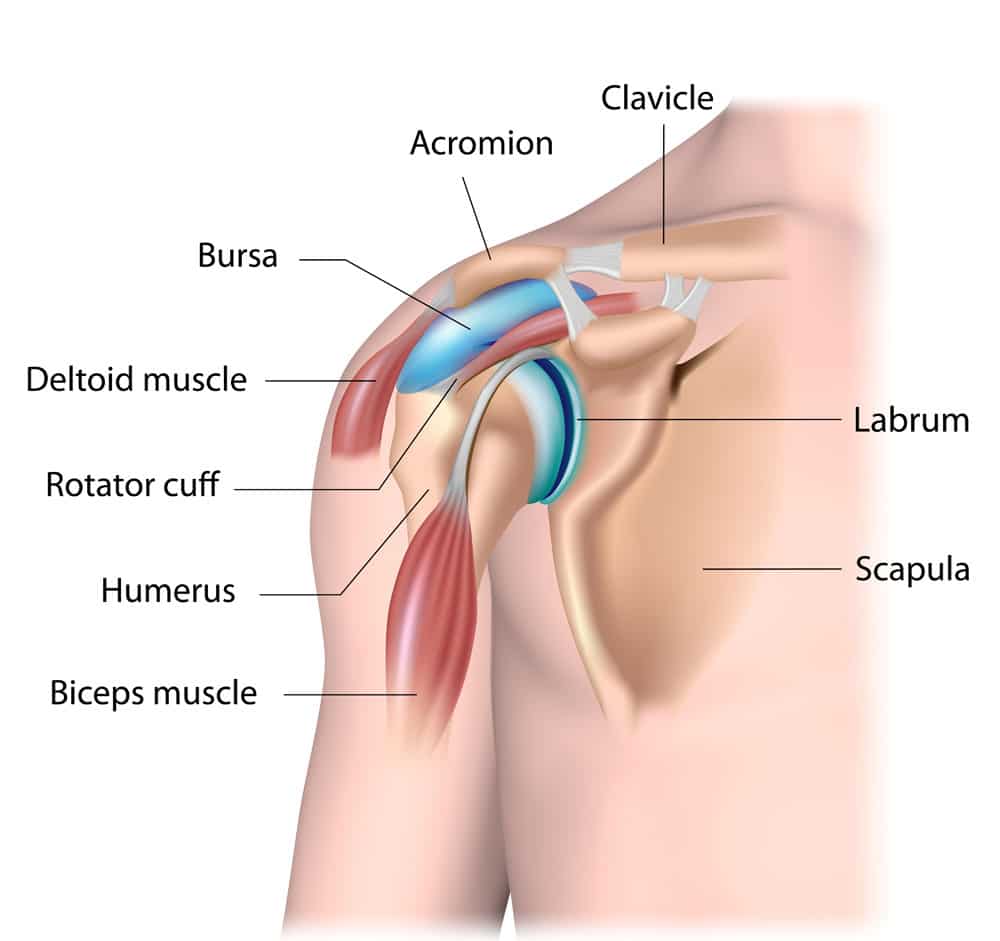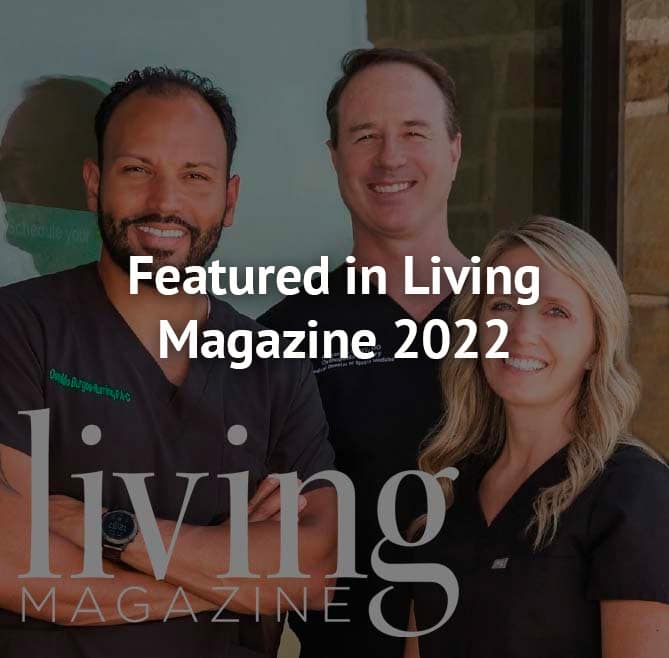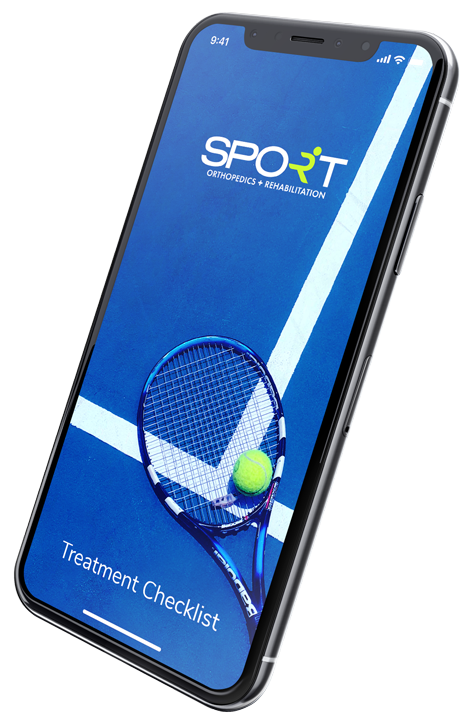Snapping Scapula Syndrome Treatment in Dallas & Frisco, Texas
Shoulder Blade Popping & Clicking Shoulder Blade
Home » Conditions » Snapping Scapula Syndrome
Shoulder Pain Treatment in Dallas & Frisco
Certain activities, such as swimming, weight lifting, baseball, or repetitive work activities carry the risk of snapping scapula syndrome development. The shoulder blade (scapula) is essential to everyday arm movement. The scapula serves as a stable base for the shoulder to move from. If any of the layers of the scapula’s movement are disrupted or thrown off, they could result in shoulder blade popping. In the medical field, we call this popping or snapping sound in bone or cartilage crepitus.
At SPORT Orthopedics + Physical Therapy, we specialize in a wide variety of treatments for all different parts of the body. Reduced mobility or pain in the shoulder can be highly detrimental to your everyday life. For the best in Dallas physical therapy, you need a highly experienced SPORT provider. We prioritize the individual needs of our patients, and focus on restoring their quality of life. To set up your appointment with a SPORT professional, call 469-200-2832, or fill out our online intake form. Remember, we may be industry leaders, but we never forget what’s most important to you: getting back to your active lifestyle.
What Is Snapping Scapula Syndrome?
This condition is characterized by a popping, snapping, or clicking shoulder blade sound. It involves more of a popping feeling than a sound, but it is sometimes audible. Additionally, this condition, if left untreated, could start to become very painful. It is more common in younger, more active individuals, who often perform repetitive overhead movements. For example, stocking shelves, weightlifting, swimming, and baseball potentially lead to shoulder blade popping. However, bear in mind that this condition could also result from bone or soft tissue problems, as well as birth defects.
What Are the Symptoms?
People with a clicking shoulder blade often experience the following symptoms. If you experience the below symptoms in your shoulder blade area, call our SPORT team of providers right away:
- Pain in the affected area, including the back or top of the shoulder, while lifting the arm overhead or shrugging their shoulders.
- Snapping, grinding, or shoulder blade popping physical sensations or sounds in the area of the scapula as they lift the arm.
- Weakness in the arm or shoulder.
- “Winging”, or the turning out from the body of the scapula. It often looks as if it is poking out.
- Difficulty using overhead arm motions because of weakness or pain in the affected area.
- Visible physical differences in how the affected scapula moves.
What Causes Snapping Scapula Syndrome?
As with many musculoskeletal disorders, there are several different causes of shoulder blade popping. Below, we describe the most common causes of snapping scapula syndrome:
- Repetitive overhead arm movements
- Incorrect technique while playing sports, including overtraining or insufficient strengthening
- Poor posture
- Soft tissue tears in the shoulder
- Weak shoulder muscles
- Tightness in the muscles of the chest, neck, shoulder, or scapula
- Neck conditions
- Shoulder joint conditions
- Tumors
- Fractures of the ribs or scapula
- Muscle or bursa inflammation
- Nerve damage to the shoulder area
- Birth defects
How to Get Rid of Snapping Scapula Syndrome?
Most cases recover after physical therapy, although severe cases sometimes result in surgery. Working with a SPORT physical therapist is crucial, as we will not only work with you at our clinic, but we will also recommend at-home exercises to help with the condition. Below, we outline both surgical and nonsurgical treatment paths for our patients:
Nonsurgical Options for Shoulder Pain:
- During the early stages of treatment, we recommend plenty of rest for the affected area. That means avoiding overhead lifting of the arm, as well as other painful movements. Apply cold packs every two hours for around 15 minutes, and always maintain good posture while sitting or standing.
- Physical therapists have goal-oriented treatment plans for their patients, including goals like reducing pain, improving range of motion, returning to normal activities, and preventing future injuries. Our treatments may include ice, heat, taping, exercises, massage therapy, and much more. We also incorporate certain exercises, such as wall angels, into our programs. (See Also: Scapular Retraction and Scapular Protraction Exercises)
Surgical Options for Shoulder Pain:
- Most cases of snapping scapula syndrome do not require surgery or a shoulder replacement for full recovery. Physical therapy and following your provider’s instructions are usually enough. However, in severe cases, your physical therapist might recommend one of our talented orthopedic surgeons. Once your surgery is complete, you will likely undergo a recovery program afterward. Your physical therapist will guide you through this process, and it will likely last several weeks.
How to Lift Weights With Snapping Scapula Syndrome?
Firstly, we recommend limiting your weight usage while strengthening your shoulder during your treatment for a clicking shoulder blade. Reasonably weighted dumbbells during recovery should only be from 3 to 5 pounds in weight. Below, we include two weighted strength training exercises for this condition, as well as stretching exercises to enhance your range of motion. Keep in mind, however, that throughout these exercises, you must maintain proper posture. Otherwise, you risk exacerbating the problem:
- Standing scapular elevation
- Upright external shoulder rotation
- Shoulder pendulum stretch
- Internal shoulder rotation stretch
- Shoulder flexion stretch
Where is the Popping Feeling with Snapping Scapula Syndrome?
So you feel the popping sensation, but where is it coming from? Several causes of that popping sensation exist, which we outline below:
- Scapulothoracic bursitis: This occurs when the bursae, or fluid-filled sacs protecting your joints, become inflamed.
- Shoulder fracture: Even if something as small as a hairline fracture heals improperly, it may lead to the popping sound. Additionally, as your bones fuse back together and heal, they may create ridges along your scapula. These ridges tend to catch or rub your muscles, which generate a popping sensation.
- Labral tear: This cartilage structure sometimes tears as a result of age, overuse, or injury. When this happens, the torn cartilage creates the popping feeling.
- Osteochondroma: Benign tumors in your shoulder area sometimes cause that popping sensation whenever you raise your arms. These are the most common benign bone growths.
- Cavitation: This is harmless, and is very similar to cracking your knuckles. It is simply a release of gas bubbles from your joints.
- Osteoarthritis: Aging cartilage often breaks down, and is not as able to protect your bones from rubbing against one another. When this happens, you may hear the grating or crackling sound.
Who Diagnoses Snapping Scapula Syndrome?
The best option for getting a diagnosis is to see a trusted SPORT orthopedic surgeon in Dallas or Frisco. Our highly trained professionals see all sorts of patients, and we prioritize your needs above all else. Below, we outline the general questions or tests we perform while diagnosing patients with snapping scapula syndrome:
- When did you first notice the pain? How did you notice it?
- Do you hear or feel popping, grinding, or snapping while moving your arm? During which activities or movements is it prevalent?
- Do you experience pain or stiffness in your neck?
- Is your shoulder often weak or “tired”?
- We perform special tests to determine where exactly your pain is coming from.
- We may also partner with an orthopedic specialist to perform X-rays or other imaging tests.

Dallas & Frisco Treatment for Snapping Scapula Syndrome
Shoulder pain and stiffness can be highly detrimental to your daily routine. For the best in Dallas physical therapy, you need our highly experienced team at SPORT. Our practice prioritizes the individual needs of our patients, and focuses on giving them their life back. From the beginning to the end of your frozen shoulder treatment, a board-certified orthopedic expert will be with you every step of the way. We offer a wide variety of shoulder pain treatments, including rotator cuff repair surgery. To set up your appointment with an orthopedic surgeon Dallas TX, give us a call at 469-200-2832, or fill out our online intake form. We may be industry leaders, but we never forget what’s important to you: getting your life back on track.


